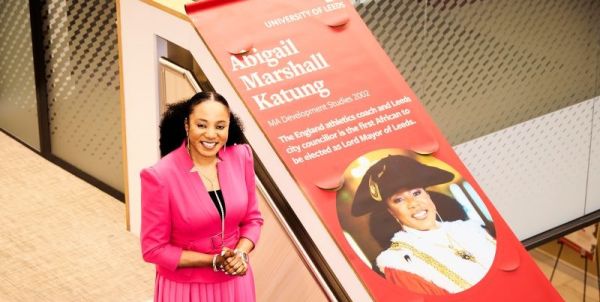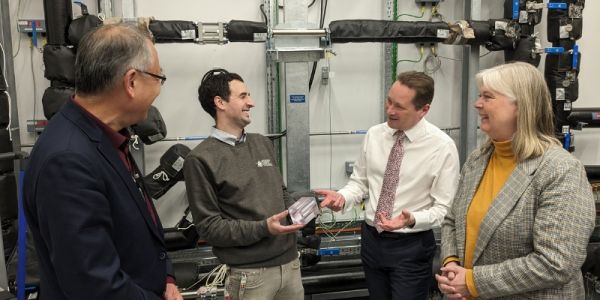
Dazzling displays return to brighten campus
Light Night celebrates its 20th anniversary this year with the University presenting its most exciting programme yet from 24-25 October.

Light Night celebrates its 20th anniversary this year with the University presenting its most exciting programme yet from 24-25 October.

Children need to be ‘vaccinated’ against fake news and dangerous disinformation, academics have warned, and digital education must improve to ensure they don't fall prey to 'nefarious actors' online.

A £38m centre dedicated to developing acceptable and planet-friendly alternatives to animal proteins is to be headed up by the University of Leeds.

Leadership is shown with actions – not with what you say, Leeds’ first Lord Mayor of African descent said in an inspiring panel discussion about Women in Leadership.

Astronomers are thought to have discovered a new way to measure how fast a black hole spins: by using the wobbly aftermath from its stellar feasting.

A multimillion-pound project to encourage people in Leeds to design and try an alternative to private vehicle ownership has been announced by researchers.

Patients’ risk of falling in the next 12 months could be predicted from their NHS data using a newly developed calculator.

The creation of a new cutting-edge facility has established the University of Leeds as the UK’s leading experimental nuclear institution in the field of multiphase fluid flow.

A new plan for Government to boost children’s mental health through the education system is released today.

Africa needs long term investment in scientific infrastructure and science careers to allow the continent to adapt to climate change and its effect on weather systems.